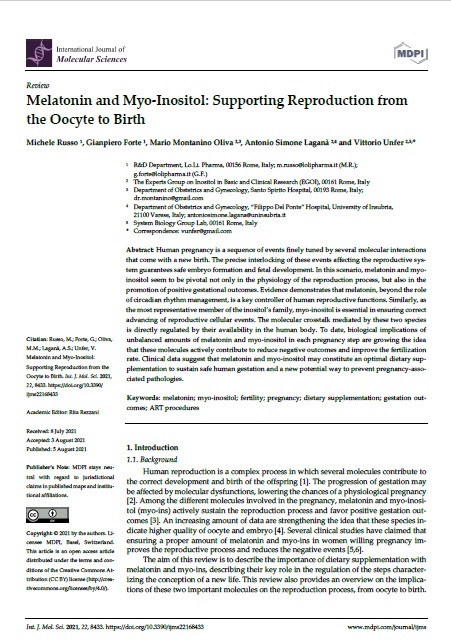Authors:
Michele Russo, Gianpiero Forte, Mario Montanino Oliva, Antonio Simone Laganà and Vittorio Unfer
Human pregnancy is a sequence of events finely tuned by several molecular interactions that come with a new birth. The precise interlocking of these events affecting the reproductive system guarantees safe embryo formation and fetal development. In this scenario, melatonin and myo-inositol seem to be pivotal not only in the physiology of the reproduction process, but also in the promotion of positive gestational outcomes. Evidence demonstrates that melatonin, beyond the role of circadian rhythm management, is a key controller of human reproductive functions. Similarly, as the most representative member of the inositol’s family, myo-inositol is essential in ensuring correct advancing of reproductive cellular events. The molecular crosstalk mediated by these two species is directly regulated by their availability in the human body. To date, biological implications of unbalanced amounts of melatonin and myo-inositol in each pregnancy step are growing the idea that these molecules actively contribute to reduce negative outcomes and improve the fertilization rate. Clinical data suggest that melatonin and myo-inositol may constitute an optimal dietary supplementation to sustain safe human gestation and a new potential way to prevent pregnancy-associated pathologies.

